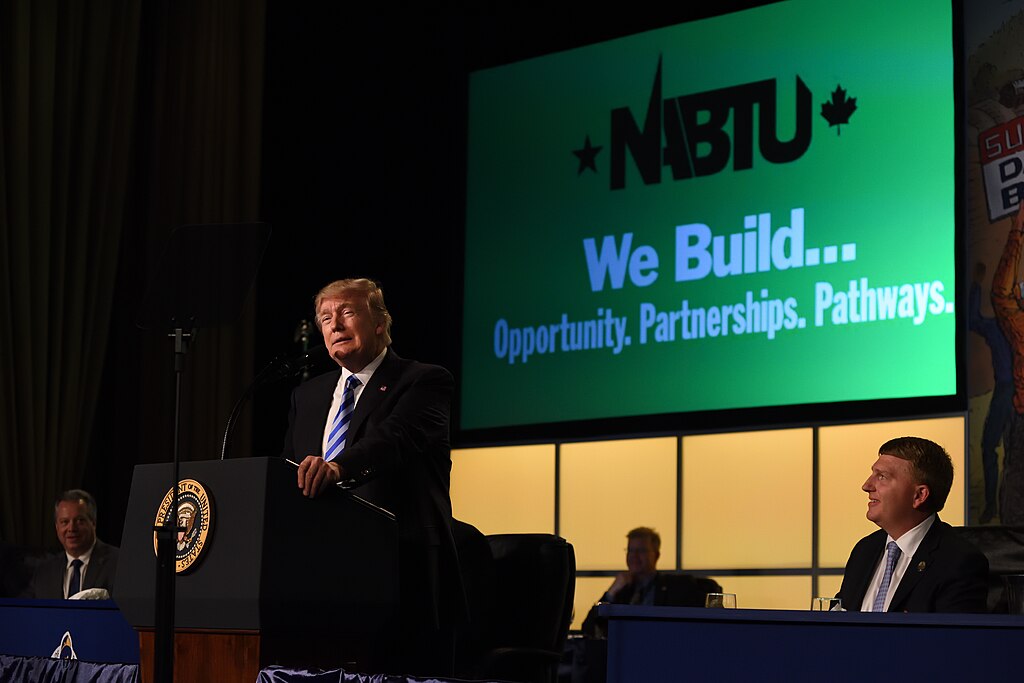President-elect Donald Trump has announced plans to pursue a nationwide ban on gender reassignment surgery for minors, reigniting an intense national debate over parental rights, healthcare, and LGBTQ+ protections. The proposed policy, set to take center stage during his administration, reflects his campaign promise to uphold what he has termed "traditional family values."
A Controversial Proposal
The plan, which aligns with policies enacted in some conservative states, seeks to prohibit medical professionals from performing gender reassignment surgeries or prescribing hormone therapies to individuals under the age of 18. Advocates argue that the policy protects vulnerable children from making irreversible decisions at a young age, but critics contend it infringes upon medical autonomy and the rights of transgender youth.
The issue has polarized the nation, with legal experts predicting lawsuits from civil rights groups if such a policy moves forward. LGBTQ+ advocates have already voiced opposition, citing studies that suggest access to gender-affirming care significantly reduces mental health struggles among transgender youth. Trump’s team, however, insists that the policy is grounded in safeguarding children from procedures that could have life-altering consequences.
Legal and Ethical Implications
Critics have raised concerns over the federal government’s ability to override state laws on medical practices. Some states, like California and New York, already have protections in place for transgender youth to access gender-affirming care. Constitutional scholars have questioned whether such a nationwide ban would hold up in court, potentially setting the stage for a legal showdown over states’ rights versus federal authority.
The American Medical Association (AMA) and the American Academy of Pediatrics (AAP) have previously opposed similar bans at the state level, arguing that gender-affirming care is essential and should be determined by medical professionals, families, and patients—not lawmakers. Trump’s proposed ban would directly challenge these organizations, pitting his administration against leading healthcare authorities.
Public Reaction and Political Divide
Reactions to the announcement have underscored the sharp political divide over transgender rights. Conservative lawmakers and organizations have applauded Trump’s stance, framing it as a defense of parental authority and childhood innocence. On the other hand, progressive groups have labeled the proposal as discriminatory and dangerous, accusing the administration of using transgender youth as a political wedge issue.
Public opinion appears equally divided. Polls suggest that a significant portion of Americans support some restrictions on gender-affirming care for minors, but outright bans remain controversial. The announcement has also fueled protests across the country, with advocacy groups organizing marches and campaigns to raise awareness about the potential impact on transgender youth.
A High-Stakes Policy Battle
As Trump prepares to take office, the policy is expected to dominate the early days of his administration. Republican lawmakers are likely to rally behind the proposal, while Democrats and advocacy groups brace for a legislative and legal battle.
The outcome of this contentious debate will not only shape Trump’s presidency but also set a precedent for how the nation approaches issues surrounding healthcare, parental rights, and LGBTQ+ equality in the years to come.



 Pentagon to Halt Ivy League Programs for U.S. Military Officers Starting 2026
Pentagon to Halt Ivy League Programs for U.S. Military Officers Starting 2026  Pentagon Leaders Monitor U.S. Iran Operation from Mar-a-Lago
Pentagon Leaders Monitor U.S. Iran Operation from Mar-a-Lago  Macron Urges Emergency UN Security Council Meeting as US-Israel Strikes on Iran Escalate Middle East Tensions
Macron Urges Emergency UN Security Council Meeting as US-Israel Strikes on Iran Escalate Middle East Tensions  EU Urges Maximum Restraint in Iran Conflict Amid Fears of Regional Escalation and Oil Supply Disruption
EU Urges Maximum Restraint in Iran Conflict Amid Fears of Regional Escalation and Oil Supply Disruption  Argentina Senate Approves Bill to Lower Age of Criminal Responsibility to 14
Argentina Senate Approves Bill to Lower Age of Criminal Responsibility to 14  Israel Declares State of Emergency as Iran Launches Missile Attacks
Israel Declares State of Emergency as Iran Launches Missile Attacks  Trump Orders Federal Agencies to Halt Use of Anthropic AI Technology
Trump Orders Federal Agencies to Halt Use of Anthropic AI Technology  Russia Signals Openness to U.S. Security Guarantees for Ukraine at Geneva Peace Talks
Russia Signals Openness to U.S. Security Guarantees for Ukraine at Geneva Peace Talks  Trump Says U.S. Combat Operations in Iran Will Continue Until Objectives Are Met
Trump Says U.S. Combat Operations in Iran Will Continue Until Objectives Are Met  HHS Adds New Members to Vaccine Advisory Panel Amid Legal and Market Uncertainty
HHS Adds New Members to Vaccine Advisory Panel Amid Legal and Market Uncertainty  Zelenskiy Urges Change in Iran After U.S. and Israeli Strikes, Cites Drone Support for Russia
Zelenskiy Urges Change in Iran After U.S. and Israeli Strikes, Cites Drone Support for Russia  Trump Announces U.S. Strikes on Iran Navy as Conflict Escalates
Trump Announces U.S. Strikes on Iran Navy as Conflict Escalates  Israel Launches Fresh Strikes on Iran After Death of Supreme Leader Ayatollah Khamenei
Israel Launches Fresh Strikes on Iran After Death of Supreme Leader Ayatollah Khamenei  Pakistan-Afghanistan Tensions Escalate as Taliban Offer Talks After Airstrikes
Pakistan-Afghanistan Tensions Escalate as Taliban Offer Talks After Airstrikes  U.S. Lawmakers Question Trump’s Iran Strategy After Joint U.S.-Israeli Strikes
U.S. Lawmakers Question Trump’s Iran Strategy After Joint U.S.-Israeli Strikes  Netanyahu Suggests Iran’s Supreme Leader Khamenei May Have Been Killed in Israeli-U.S. Strikes
Netanyahu Suggests Iran’s Supreme Leader Khamenei May Have Been Killed in Israeli-U.S. Strikes  Trump Warns Iran as Gulf Conflict Disrupts Oil Markets and Global Trade
Trump Warns Iran as Gulf Conflict Disrupts Oil Markets and Global Trade 
































